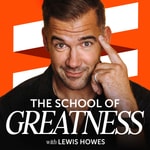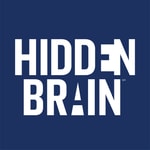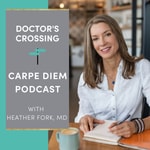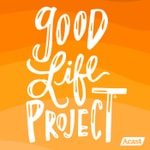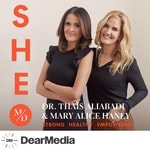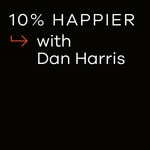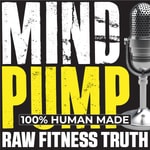Groundless Ground Podcast – Details, episodes & analysis
Podcast details
Technical and general information from the podcast's RSS feed.
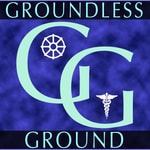
Groundless Ground Podcast
Lisa Dale Miller
Frequency: 1 episode/39d. Total Eps: 66

Recent rankings
Latest chart positions across Apple Podcasts and Spotify rankings.
Apple Podcasts
🇬🇧 Great Britain - socialSciences
19/04/2025#90🇬🇧 Great Britain - socialSciences
18/04/2025#71🇨🇦 Canada - socialSciences
19/02/2025#93🇨🇦 Canada - socialSciences
18/02/2025#76🇨🇦 Canada - socialSciences
17/02/2025#57🇨🇦 Canada - socialSciences
16/02/2025#41🇨🇦 Canada - socialSciences
09/01/2025#93🇨🇦 Canada - socialSciences
08/01/2025#70🇨🇦 Canada - socialSciences
07/01/2025#57🇨🇦 Canada - socialSciences
06/01/2025#32
Spotify
No recent rankings available
Shared links between episodes and podcasts
Links found in episode descriptions and other podcasts that share them.
See all- https://lochkelly.org/
119 shares
- https://traumahealing.org/
95 shares
- https://drjud.com/
94 shares
RSS feed quality and score
Technical evaluation of the podcast's RSS feed quality and structure.
See allScore global : 68%
Publication history
Monthly episode publishing history over the past years.
Awakened Heartmind
Season 6 · Episode 63
dimanche 7 avril 2024 • Duration 32:31
Lisa Dale Miller starts this episode with an explanation of why the Groundless Ground Podcast has been on hiatus for the last year. Then the episode presents a dharma talk Lisa gave at Marin Sangha one month ago. Her talk is a reminder that every moment is an invitation to decrease the mass of human suffering by seeding the world with at least one more quiescent, wise, and compassionate mind committed to non-harming. Lisa explicates why cultivation of Bodhicitta is the ultimate path to accomplishing that aim, right in the midst of ordinary daily life.
Longchenpa's Finding Rest in the Nature of Mind
Lisa Dale Miller, LMFT, LPCC, SEP specializes in working with high-performing professionals (engineers, scientists, executives, physicians/psychologists, first responders) struggling with unresolved traumatic experiences: particularly medical trauma, C-PTSD, combat and war trauma, moral injury, high-impact injuries, burnout, workplace harassment, traumatic grief, and challenging life transitions.
Lisa authored Effortless Mindfulness: Genuine mental health through awakened presence a highly regarded textbook on Buddhist psychology for mental health professionals. Lisa has been an outpatient clinician for the VA San Jose, has taught a variety of Mindfulness-based Interventions, and is an AAMFT Clinical Fellow. Lisa is a Buddhist teacher and has been a yogic and Buddhist meditation practitioner for over four decades.
Basic Human Goodness
Season 6 · Episode 62
mardi 28 mars 2023 • Duration 36:45
This is a recording of a dharma talk Lisa Dale Miller gave March 19, 2003 at Marin Sangha.
Recently neuroscientist Richard Davidson reiterated a long-held tenet of Tibetan Buddhism that all human beings share the same wish to be happy and free of suffering, and that this wish emerges from innate basic goodness. This goodness is often viewed in Mahāyāna and Vajrayana Buddhism as an expression of Buddhanature, the fundamental awakened mind of all beings. There is not much in the Pāli Canon to support the notion of innate goodness. However, the Buddha did teach unconditioned mind—a mind purified through contemplative effort, not an innately awakened mind. This dharma talk compares these two frameworks and explores the cultivation of ethical goodness using specific suttas and findings from affective neuroscience. And I am joined by a co-teacher ChatGPT, which explicates historical references to goodness and investigates its own sense of how to engage in ethical conduct.
Lisa's catalogue of Dharma Talks can be found on the Groundless Ground and those done prior to 2020 are available on my clinical website.
Mark Solms on Consciousness
Season 5 · Episode 53
lundi 14 février 2022 • Duration 01:04:39
Consciousness remains a scientific puzzle: what it is, what creates it, and though all known conscious systems are alive, not all living systems are conscious. These days cortical-based theories of consciousness are all the rage. However, renown neuropsychologist and psychoanalyst Mark Solms has put forth, in his book “The Hidden Spring”, a radically convincing theory for the subcortical, homeostatic origins of consciousness rooted primarily in feeling or what is known as affect. Dr. Solms explains why a particular area of the brainstem is his choice for where the lights of consciousness get switched on and off and deftly explains the difference between mind and consciousness, and why humans have evolved a mind to mediate between the needs of the visceral body, the self, and the objects in the world that satisfy those needs.Dr. Solms’ research on consciousness has recently pivoted toward bridging affect into artificially intelligent systems and yes we do talk about the ethics of that frightening possibility. This episode is fascinating and mind-blowing and I am so grateful to have had time with such a compassionate and brilliant researcher, clinician.
Mark Solms is a renown South African psychoanalyst and neuropsychologist best known for discovering forebrain mechanisms of dreaming, and neuropsychoanalysis, his unique integration of psychoanalytic theory with neuroscientific methodology. He holds the Chair of Neuropsychology at the University of Cape Town and Groote Schuur Hospital (Departments of Psychology and Neurology) and is the President of the South African Psychoanalytical Association. He is also Research Chair of the International Psychoanalytical Association (since 2013). Solms founded the International Neuropsychoanalysis Society in 2000 and he was a Founding Editor (with Ed Nersessian) of the journal Neuropsychoanalysis. He is Director of the Arnold Pfeffer Center for Neuropsychoanalysis at the New York Psychoanalytic Institute.
Somatic Horsemanship
Season 5 · Episode 52
lundi 10 janvier 2022 • Duration 53:32
This is a very special episode with Beverley Kane, MD, discussing her book Equine-imity: Stress Reduction and Emotional Self-Regulation in the Company of Horses, which introduces us to somatic horsemanship—a therapeutic practice for exploring the physical relationship between humans and horses, on the ground and on the horse, to promote body-mind-spirit well-being in both species. Dr. Kane portrays horses as consummate teachers of healthy embodiment and emotional resilience and describes interventions like medical qigong that help patients learn how to regulate and heal nervous system and psychological dysfunction. She tells us about somato-intuitive skills horses naturally use like presentiment and going back to grazing which we can model and implement to enrich our daily lives. This is an informative and enchanting dialogue to kick off 2022 with a heartfelt wish for total health.
Beverley Kane, MD, is Adjunct Assistant Clinical Professor of Medicine and an integrative medicine physician in the Stanford Division of Primary Care and Population Health, Palo Alto, California. She is the founder and Lead Mare of Horsensei Equine-Assisted Learning and Therapy (HEALTH).
Rescuing Virtue
Season 4 · Episode 51
dimanche 12 décembre 2021 • Duration 53:07
Stuart Shanker, MD and I address the loss of virtue as a fundamental part of societal and individual conduct and how to reinvigorate it. He notes with sadness the quaint overtones and ironic sarcasm that has infected discussion of virtuous conduct; particularly in politics, journalism, academia, and psychology. We name the war between reason and emotion, rationality and irrationality, and discuss its role in widespread sense of unsafety, outright lying and ‘truthiness’ in media, and the continuing horror of school shootings in America. We discuss solutions for restoring ethical human values so critical for well-being and wholesome relationship. Happy and healthy New Year to every listener and all beings residing on our planet.
Dr. Stuart G. Shanker, is a research professor emeritus of Philosophy and Psychology at York University[1] and the Founder/CEO of The MEHRIT Centre(TMC) 2012. He is also the founder and Science Director of the Self-Regulation Institute (SRI), and an acclaimed author and international speaker.[2] He is best known as Canada's leading expert in the psychophysiological theory of self-regulation. His latest book is REFRAMED: Self-Reg for a just society.
Neurobiology of Trauma and MDMA for PTSD
Season 4 · Episode 50
lundi 1 novembre 2021 • Duration 01:15:13
Psychologist Jim Hopper and I discuss the neurobiology of trauma, MDMA-assisted therapy for PTSD, the critical role embodied treatment modalities play in trauma healing, and use of Buddhist psychology and Internal Family Systems (IFS) for trauma resolution. He fully explicates the process used in the FDA-approved and MAPS-sponsored MDMA phase 3 trials, discusses the results, and clarifies for whom MDMA, Ketamine or psilocybin sessions could be adjunctive trauma treatment. We also discuss a habit model of understanding trauma response as well as an updated ethical view of addiction. Jim is a consummate communicator. That, coupled with his depth and breadth of knowledge about trauma therapy, make this episode a critical listen for every clinician working in the trauma field.
Jim Hopper, PhD is most often sought for his expertise on the neurobiology of trauma and sexual assault, and on the unique experiences and needs of males who have experienced sexual abuse or sexual assault. He trains others in contemplative practices that transform the brain to bring healing and genuine happiness, and is co-editor of Mindfulness-Oriented Interventions for Trauma: Integrating Contemplative Practices. He is a sub-investigator at the Boston site of the FDA-approved and MAPS-sponsored phase 3 trial of MDMA-Assisted Therapy for PTSD. Jim is a Teaching Associate in Psychology in the Department of Psychiatry of Harvard Medical School, and a consultant to the Outpatient Addictions Service of the Cambridge Health Alliance.
Kindness vs Niceness
Season 4 · Episode 49
jeudi 30 septembre 2021 • Duration 01:09:54
Two recent dharma talks given by Lisa Dale Miller at Marin Sangha explicate what kindness is from Buddhist psychological perspective and how it radically differs from niceness. To lay the groundwork of what kindness is, the first talk employs a very challenging sutta, “The Simile of the Saw”, where the Buddha proscribes wholesome conduct in all manner of difficult relational engagements. The second talk investigates kindness and niceness and clarifies their differences. Niceness though pleasing or agreeable, is only intended to avoid discomfort and is deceptive and disingenuous. Kindness is genuine benevolence enacted through skillful application of presence and discerning wisdom. Due to its engaged and other-centered nature, kindness isn’t always easy and navigating the discomfort it can bring is the common ground of both talks. May these talks lead to the awakening of all beings everywhere.
Stuart Shanker on Reframing for a Just Society
Season 4 · Episode 48
mardi 31 août 2021 • Duration 50:19
Stuart Shanker, PhD is a world-renown author, researcher and scholar on self-regulation science and creator of the groundbreaking Self-Reg method for cultivating mental and physical well-being. His life’s work has focused on the beneficial role that positive stress plays in children’s development and learning, and the harmful effects of excessive negative stress on parents, educators, and children. His new book, REFRAMED: Self-Reg for a just society, explores self-regulation in wider, social terms and unpacks the unique science and conceptual practices that are the very lifeblood of the Self-Reg. I have been a big proponent of the Self-Reg methodology and recommend the Self-Reg books and website resources to patients struggling with poor parenting skills and child behavioral problems. Dialoging with Stuart Shanker was simultaneously humbling and affirming. He felt like both a kindred spirit and a wise elder. This episode presents a doable path for healing societal distress and discord by bravely, collectively solving the existential crises of our time.
Self-Reg website https://self-reg.ca/
Stuart Shanker is Distinguished Research Professor Emeritus of Philosophy and Psychology at York University. An internationally celebrated speaker, thinker, and writer, Dr. Shanker is one of the world’s leading authorities on self-regulation. Stuart trained intensively in child psychotherapy under Stanley Greenspan; he was the Director of the Milton and Ethel Harris Research Initiative at York University; President of the Canadian Council of Early Child development; Director of the council of Human Development; and has served for many years as an advisor to government and education organizations across Canada and internationally. Since 2012 he has been Founder/CEO of The MEHRIT Centre.
Rodney Dietert on Microbiome-First Medicine
Season 4 · Episode 47
lundi 2 août 2021 • Duration 55:39
Get ready for a microbiome geek-fest with Cornell Professor Emeritus, health scientist, and author Rodney Dietert, as we celebrate the 10th anniversary of his pioneering book, The Human Super-organism. Rodney shares the fascinating history of microbiome research and recounts his own life-changing, career-shifting revelations about microbiome-first medicine in reversing the modern epidemic of non-communicable chronic diseases (NCDs) and immune system disorders. We discuss the difference between viruses and bacteria, and because our dialogue took place in June 2021 (pre-Delta-variant spread in the US) he offered surprising views about COVID19, vaccines, and mask-wearing. We also cover the latest research on microbiome testing, probiotics, prebiotics, rebiosis, and fecal transplant interventions for physical and mental health disorders.
Rodney Dietert, PhD has turned his wide-ranging expertise toward reducing the environmental health risks of children and protecting against chronic diseases by focusing on the microbiome and the immune system. As a full professor at Cornell University in the Department of Microbiology and Immunology and a faculty member in the Cornell Institute for Comparative and Environment Toxicology, Dr. Dietert has published peer-reviewed papers in more than 70 different scientific journals ranging from environmental health and pediatric medicine publications to nutrition, metabolism, immune, neurological and reproductive journals. He has been President of the Immunotoxicology Specialty Section of the Society of Toxicology and previously led Cornell's programs in immunology, toxicology and risk reduction of breast cancer. In 2012 Dr. Dietert introduced a new course at Cornell applying contemplative tools for creative problem solving. This has blossomed into a variety of new educational programs and workshops.
Jeremy Lent on The Web of Meaning
Season 4 · Episode 46
mardi 29 juin 2021 • Duration 01:04:57
Jeremy Lent’s new book, The Web of Meaning: Integrating Science and Traditional Wisdom to Find Our Place in the Universe offers a coherent worldview of deep interconnectedness by integrating ancient Taoist and Buddhist views of humanness and awakening, with a modern scientific, conceptually-oriented view of human capacity. Jeremy makes the case for reigniting lost ethical values that can shift the disconnection that has led humanity to the brink of ecological and societal destruction. We discuss deep intelligence, wise action, how to expand collective concern to include all humans, our animal and plant brothers and sisters, and our planet. Our practical and philosophical dialogue moved me at the core of my being. May it be an inspiration for shift in all who hear it!
The US edition is available mid-July but you can get the UK edition now.
Visit the book website. Visit Jeremy's website
Jeremy Lent received a BA in English Literature from Cambridge University, an MBA from the University of Chicago, and was a former internet company CEO. His award-winning book, The Patterning Instinct: A Cultural History of Humanity's Search for Meaning, explores the way humans have made meaning from the cosmos from hunter-gatherer times to the present day. He is founder of the nonprofit Liology Institute, dedicated to fostering an integrated worldview that could enable humanity to thrive sustainably on the Earth.


